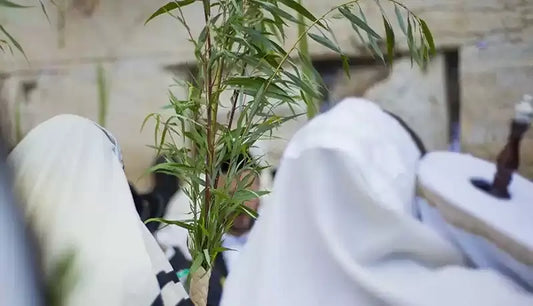“Please note: During this week I will have limited access to email and communication…”
This common ‘out-of-office’ message, left by someone on vacation, best describes what our attitude towards Hol Hamo’ed should be.
If one were to spend a large amount of money on an exotic tour of Rome or the like, he would naturally want to maximize his visit, and utilize every moment of his time to enjoy the vacation. He would certainly prefer to focus on his touring, rather than getting distracted with work, emails, laundry, or other mundane activities.
Hol Hamo’ed is like a vacation. The Gemara Yerushalmi teaches us that the purpose of Hol Hamo’ed is to enjoy the holiday by eating, drinking, and engaging in Torah study. We spend time with Hashem and family. It is now prime time.
With this in mind we can hopefully appreciate the benefits of the detailed laws which the Torah and our Hachamim have crafted for us.
Does the mitsvah of happiness on a holiday apply to Hol Hamo’ed?
The mitsvah of happiness applies on Hol Hamoed too. Just like on Yom Tov, we celebrate with meat and wine, and women, wear new clothes and jewelry. One may also engage in other activities that will make him happy, such as listening to music or going on outings.
Should one wear Shabbat clothing, or weekday clothing?
Although the mitsvah to honor Hol Hamoed is not on the same level as the actual days of Yom Tov, one should still wear respectable clothing, as befitting the holiday.
Does one have to eat a bread meal?
It is befitting to have respectable meals in honor of Hol Hamo’ed; one should have meat and wine. While a bread meal is not required, it is ideal to have one such meal each day and night, just as on Yom Tov itself. It is not permitted to fast on Hol Hamoed; as a holiday, there is a mitsvah to honor and enjoy the day.
Is it permitted to have an engagement party?
There is a principle that “one simha may not be mixed with another,” as doing so decreases from respective level of simha for each individual event. As such, it is forbidden to have a wedding on a holiday, even on Hol Hamo’ed. However, this only applies to a wedding. Other forms of simha, such as an engagement party, a pidyon haben, bar mitsvah, or a hanukat habayit, are permitted, as the level of simha is not as great.
Are all melachot (i.e. forbidden types of work) permitted on Hol Hamo’ed?
There are two types of melachot: 1) ma’aseh hedyot – unskilled work, and 2) ma’aseh uman - skilled work. In some cases, only unskilled work is permitted while in other cases even skilled work is permitted.
In order for a melacha to be permitted, it must either be necessary for the holiday or to avoid financial loss. If there is no real need for the melacha, or if it is being done for after the holiday, it is not permitted, even if it is unskilled work (ma’aseh hedyot). For example, one may not cook or bake on Hol Hamo’ed for after the holiday. (In certain instances, a melacha can be done for the public good even if it is not necessary for the holiday. A rabbi should be consulted).
What is considered a ma’aseh uman – skilled work?
Ma’aseh uman refers to anything which requires a trained professional, or practice. For example, sewing is considered a skilled work as it takes practice to be able to sew, even though sewing is not strictly done by professionals.
Which melachot can be done for the needs of the holiday?
Generally, any melacha which is needed for the holiday is permitted if it is done in an unskilled manner (ma’aseh hedyot). For example, cutting nails, polishing shoes, or ironing clothing are all permitted.
Ma’aseh uman is permitted for the preparation of food, as long as the preparation is being done for the holiday. This would include fixing an oven or fridge, even by a professional, as these are necessary for the preparation of food.
Can I get a manicure/pedicure?
Ma’aseh uman is also permitted for things directly related to bodily care. For example, it would be permitted to get a manicure or pedicure on Hol Hamo’ed.
What type of melacha is permitted to prevent a loss?
To prevent a loss, even ma’aseh uman is permitted. For example, if a lock to an outside door or a window is broken, one may have it fixed in a skilled manner, to prevent a robbery. It is only considered a loss if one would suffer a loss of something he owns if the melacha is not done. However, not gaining something new is not considered a loss.
Can I have a non-Jew do melacha for me on Hol Hamo’ed?
As is the case with Shabbat and Yom Tov, one may not have a non-Jew do any melacha which the Jew may not do himself.




